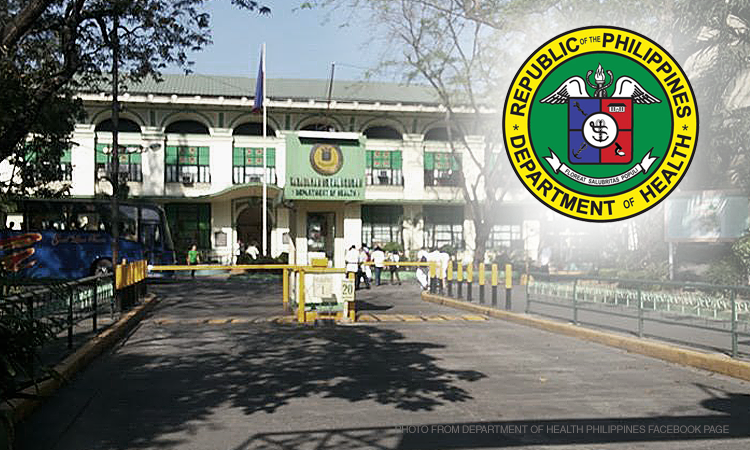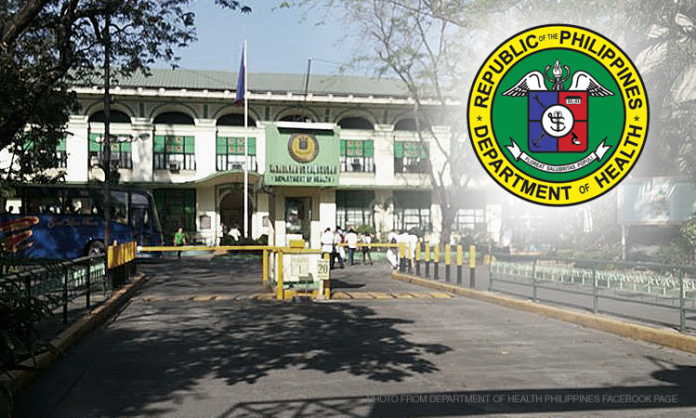
THE Department of Health (DOH) is seeking to reallocate its unused funds from its procurement of personal protective equipment (PPEs) to the purchase of Covid-19 vaccines.
The Government Procurement Policy Board (GPPB) disclosed in its Resolution No. 02-2021 that DOH wrote a letter to DBM Secretary and GPPB chair Wendel Avisado on January 25 requesting the inclusion of the vaccines in the list of Common-Use Supplies and Equipment (CSE) and to authorize the Procurement Service (PS-DBM) to utilize actual and potential savings from the procurement of PPEs for the procurement of vaccines.
The said “savings” islodged under the PS-DBM. Common-Use Supplies refers to those supplies, materials, and equipment included in the price list of the PS which are necessary in the transaction of the official business of the procuring entity and consumed in its day-to-day operations.
However, GPPB said PS-DBM sent a memorandum to Avisado on January 29, expressing reservations on DOH’s request to include the vaccines in the list of CSE, considering the nature and definition of CSE items as well as its lack of appropriate expertise in the handling, storage, delivery and distribution of vaccines.
In particular, it also noted that there are existing restrictions on the Emergency Use Authorization (EUA) issued by the Food and Drug Administration (FDA) where pharmaceutical companies are allowed to sell Covid-19 vaccines only to DOH.
GPPB said it has also recommended that DOH’s request on the reallocation of savings be endorsed to DBM.
On February 3, the GPPB also approved the said resolution seeking clarification from the Inter-Agency Task Force on Emerging Infectious Diseases (IATF-EID) and the Covid-19 Vaccine Cluster on the intended role of PS-DBM in the implementation of the National Vaccination Plan, as this may determine whether Covid-19 vaccines should be included in the list of CSE.
In a separate interview with BusinessMirror, GPPB-TSO Executive Director V Rowena Candice Ruiz said they have yet to receive a response from IATF-EID and the Covid-19 Vaccine Cluster as of Friday, February 19.
However, Ruiz said a meeting was called by the Office of the President (OP) last week, wherein it was clarified that the objective of DOH’s request to have the Covid-19 vaccines declared as CSEs was to “use DOH unused funds with PS.”
If this is the goal, Ruiz said, she clarified during the meeting that the use of unused funds with PS may be done by DOH or without authority from DBM, depending on the status of the funds. “Thus, our referral with the DBM,” she said.
In the same meeting, Ruiz also expressed concern that declaring Covid-19 vaccines as CSE may hinder LGU procurement as this may entail a “longer process.”
In an e-mail to BusinessMirror, she said she also noted that since there is a tripartite agreement authorized by the NTF for the LGUs to procure Covid-19 vaccines, declaring the same as CSE may be an unintended constraint on LGUs’ authority to procure which is not something we want, especially at this critical point,” she said
She explained that declaring the Covid-19 vaccines as CSE would mean that LGUs will then be required to buy the same from PS.
But Ruiz said PS told them that since it’s not available with them, they will just issue a Certificate of Non-Availability of Stocks (CNAs) so LGUs can buy directly.
“This entails a longer process as opposed to the tripartite agreement where LGUs directly purchase vaccine from the pharma company,” she said.
Nonetheless, Ruiz said the “best and most expedient recourse for DOH to use its unused funds with the PS is to have a change of creditor (technical procedure) subject to DBM rules.”
Hence, she said, “the DOH was advised to coordinate immediately with DBM to guide them should they need further clarifications.”
Sought to clarify the need for DOH to push for the “longer process” and not just stick with the tripartite agreement, Ruiz said: “I would not be able to know this, since I am not part of the discussions in the IATF or NTF (National Task Force Against COVID-19). I just learned this during the meeting called by OP.”
Ruiz also clarified that they “have no preference” as to which agency should procure, adding that “our interest here is to ensure the most expedient way possible. Hence, I noted that the tripartite agreement, authorized by the NTF, will allow for direct purchase by LGUs.”
The BusinessMirror tried to reach DBM Secretary Wendel Avisado for comment on DOH’s request but he said he “will have this checked tomorrow (Monday).”
Budget Undersecretary Lloyd Christopher Lao, head of PS-DBM, has also yet to give a response, as of press time.
The government needs P82.5 billion to vaccinate adult Filipinos.
Of the P82.5 billion, the amount of P2.5 billion already forms part of the budget of the Department of Health (DOH) under the 2021 national budget, while P10 billion will come from the funds allocated for the Covid-19 vaccination program under Republic Act (RA) No. 11494 or the Bayanihan To Recover As One Act (Bayanihan 2).
As for the remaining amount, Finance Secretary Carlos G. Dominguez earlier said government is targeting about US$1.3 billion (roughly P63 billion) in loan financing from multilateral lenders; this includes the Philippines’ contribution of US$84 million to the Covid-19 Vaccines Global Access (Covax) Facility, to ensure vaccines for more than 70 million Filipinos or over 100 percent of the country’s adult population.
Together with the private sector, the Philippines is expected to get a total of about 178 million vaccine doses, good for 92 million individuals, to ensure that 100 percent of the country’s adult population gets inoculated, he said.
Read full article on BusinessMirror

